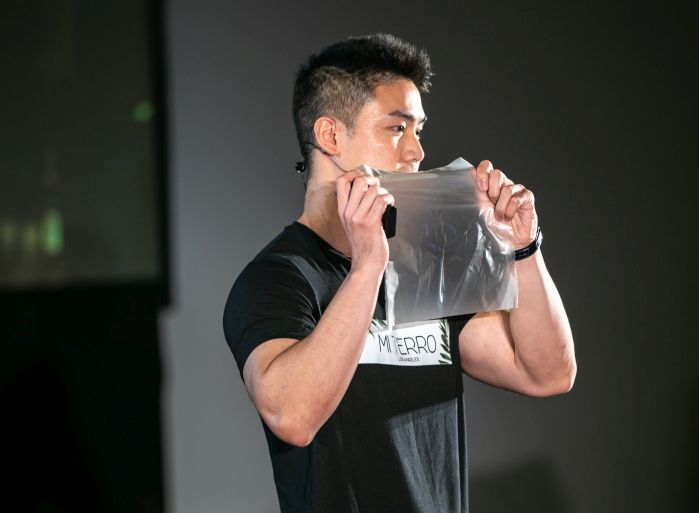Mi Terro—a sustainable packaging startup tapping food and ag waste streams to create replacements for petrochemical-derived films—has teamed up with Lipton to develop dissolvable tea pods.
Under a joint development agreement, Mi Terro will develop edible, dissolvable packaging materials, while Lipton will provide tea powders, facilities, and equipment for testing, said CEO Robert Luo, who cofounded Mi Terro in 2018 with Dr. Shengfu Chen, a professor in the department of chemical and biochemical engineering at Zheijang University in Hangzhou, China.
While instant tea powder is typically packaged in jars and spooned into cups, having edible, dissolvable films will enable Lipton to experiment with new portable, pre-portioned pods that can be dropped into hot or room-temperature water on the go, said Luo. “Lipton reached out to us and we’ve been talking to them for close to 12 months.”
The films could equally be used to contain pre-portioned amounts of loose leaf tea for drinkers that prefer this format, he said. “It dissolves within a couple of seconds and doesn’t leave any residue. It also extends the shelf-life of the tea.”
The edible films—made from an undisclosed mix of polysaccharides and other “bio-based” ingredients—can also be used in sauce packs for dropping into instant noodles, ketchup packs, and pre-measured protein powder packs for gym-goers to drop into flasks of water or milk, claimed Luo.
‘It dissolves within a couple of seconds’
So how does this compare with other edible packaging solutions on the market?
According to Luo: “There are firms using seaweed to make edible sachets but to my knowledge this has not yet been shown to be scalable. There are also companies out there using polyvinyl alcohol (PVA), a film used in laundry and dishwasher pods, which I’ve also seen used in protein powders, but it’s derived from petrochemicals and I’m not sure I’d want to drink it.”
(In 2019, the FDA said it had no questions about the safety of PVA in edible food packaging in response to a generally recognized as safe (GRAS) determination for PVA from MonoSol.)
Mi Terro, which has raised around $1.5 million in seed funding, has small teams in China and in Los Angeles. Its PVA replacements for laundry pods and detergent pods are made from polysaccharides from potato peelings and cellulose from the byproduct of paper production.





